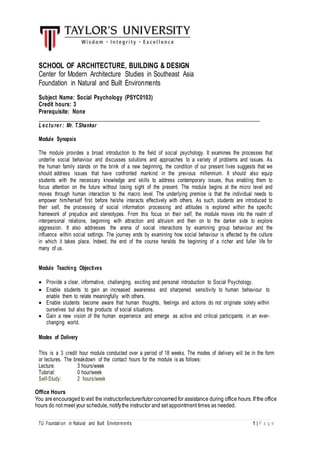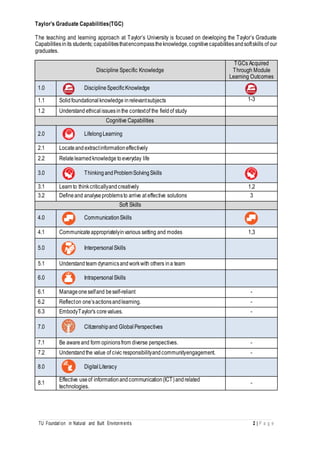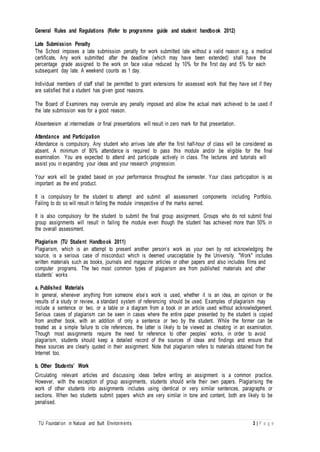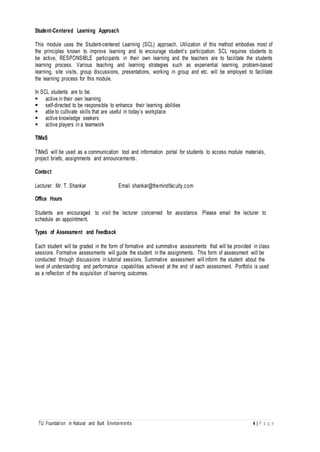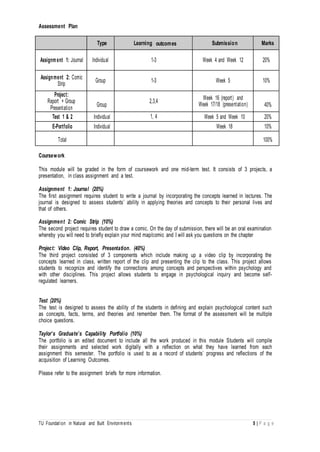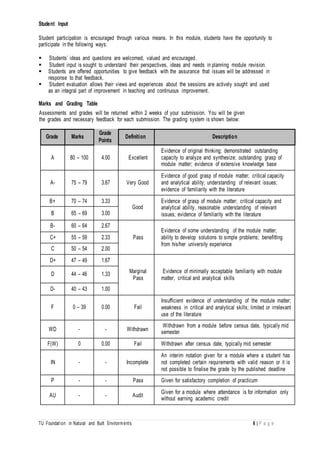The document provides information on a 3 credit hour social psychology module taught over 18 weeks. It will use student-centered learning approaches like group discussions and presentations. Students will learn about social behavior, prejudice, attraction, aggression, and how culture influences social behavior. Assessment will include formative assessments through tutorials, summative assessments to evaluate understanding, and a portfolio reflecting achievement of learning outcomes. The goal is to help students gain awareness of human behavior and interactions to relate effectively with others.
